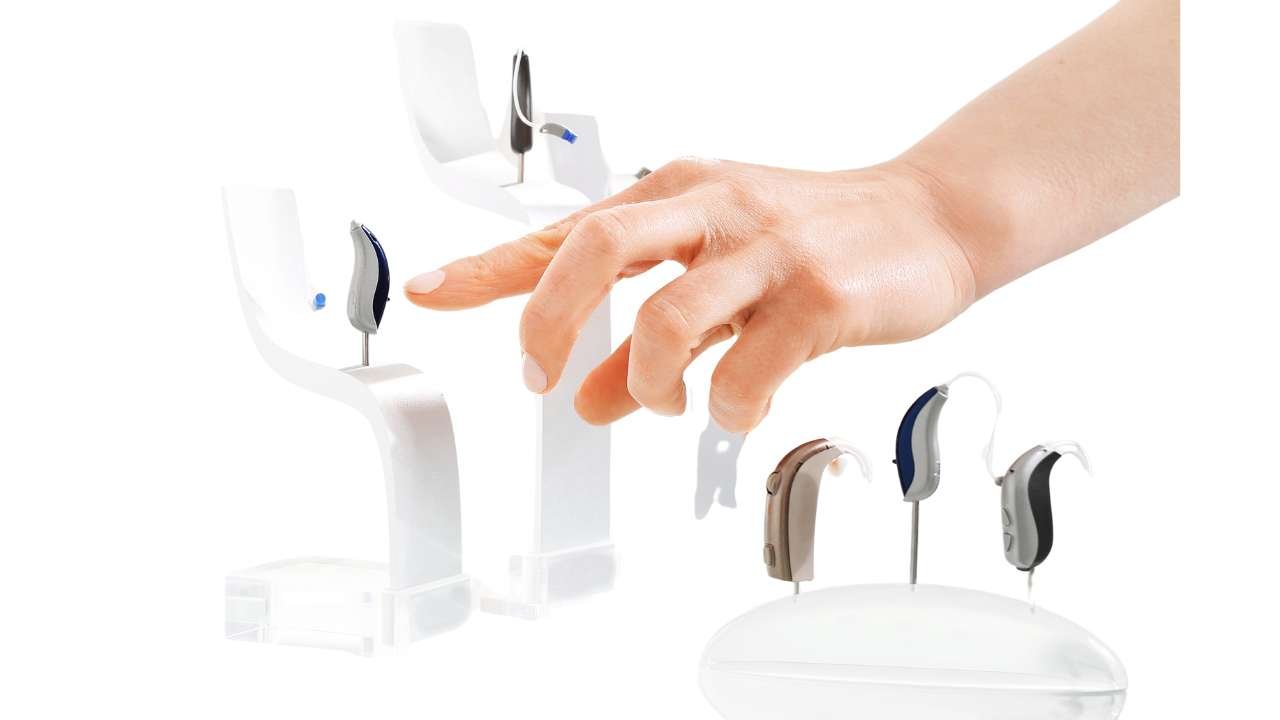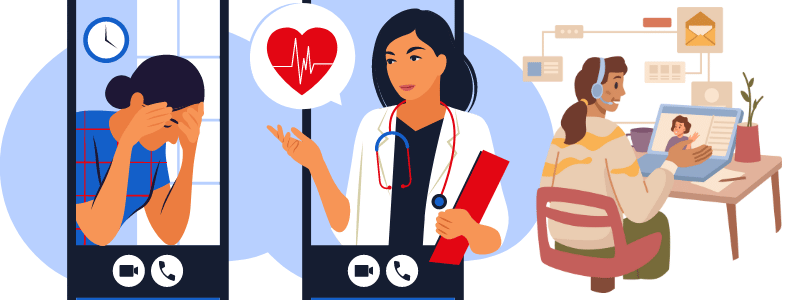Book a Free Appointment Today!
Scroll and Choose the Appropriate Service

Hearing Aids
FREE HEARING AID TRIAL
HEARING AID FITTING
HEARING AID REPAIR
HEARING AID BATTERY
HEARING AID ACCESSORIES
EAR MOLD

Hearing Test
PURE TONE AUDIOMETRY (PTA) | SPEECH AUDIOMETRY (SA) | BRAINSTEM EVOKED RESPONSE AUDIOMETRY (BERA) | TYMPANOMETRY/IMPEDANCE AUDIOMETRY | OTOACOUSTIC EMISSION (OAE) CHILD HEARING SCREENING TEST | BOA AND CPA

Speech Therapy
AUTISM THERAPY | ADHD/ADD THERAPY | STUTTERING/STAMMERING THERAPY | MISARTICULATION THERAPY | ABA THERAPY | INTELLECTUAL DISABILITY THERAPY | LEARNING DISABILITY THERAPY| CEREBRAL PALSY THERAPY | CLUTTERING THERAPY

Clinical Services in Lucknow
For best Service Experience
👉 Hearing Aid Center
👉 Hearing Tests Center
👉 Speech Therapy Center
👉 Voice Therapy Center
👉 Vestibular Rehabilitation Center
👉 Special Education & Occupational Therapy Center

Home Visit Services in Lucknow
For your convenience & Mobility
👉 Hearing Aid Trail
👉 Hearing Aid Fitting
👉 Hearing Tests at Home
👉 Speech Therapy Home Visit
👉 Voice Therapy Home Visit
👉 Special Education & Occupational Therapy Home Visit

Online Services in Lucknow
For Your Enquiry and Awareness
👉 Free Video Consultation
👉 Free Hearing Screening
👉 Free Speech and Language Screening
👉 Online Speech and Language Therapy
👉 Online Voice Therapy
👉 Online Special Education & Online Parent Consultation
Send Us a Message Anytime!
Info
Contact or Visit Us
Email Address
admin@otospeak.com
Location
9/3 Chander Nagar Market, Chander Nagar, Alambagh, Lucknow (Uttar Pradesh) 226005
Phone Number
+91 7004229432
+91 8957590428
FAQ
Frequently Asked
How to Know if you have a Hearing Problem?
There are several signs that may indicate you have a hearing problem:
1. Difficulty understanding speech, especially in noisy environments.
2. Frequently asking people to repeat themselves or speak louder.
3. Struggling to hear consonants or high-pitched sounds.
4. Turning up the volume on the TV, radio, or other electronic devices to levels others find too loud.
5. Avoiding social gatherings or situations where you may have trouble hearing.
6. Feeling like others are mumbling or not speaking clearly.
7. Tinnitus (ringing, buzzing, or hissing noises in the ears).
8. Family members or friends expressing concern about your hearing.
If you notice any of these signs, it’s essential to consult with a healthcare professional or audiologist for a hearing evaluation. They can diagnose any hearing loss and recommend appropriate treatment or solutions.
How do you know if you have Permanent Hearing Loss?
Permanent hearing loss can be determined through a comprehensive evaluation by a healthcare professional or audiologist. Some indicators that your hearing loss may be permanent include:
1. Consistent difficulty hearing in various situations, even after trying different environments or aids.
2. Hearing loss that does not improve over time, despite attempts to address it.
3. A history of exposure to loud noises or ototoxic medications, which can cause permanent damage to the auditory system.
4. Audiometric testing showing significant and consistent hearing loss across various frequencies.
5. Medical conditions such as genetic disorders, autoimmune diseases, or structural abnormalities that affect the auditory system and are known to cause permanent hearing loss.
If you suspect you have permanent hearing loss, it’s crucial to seek evaluation and guidance from a healthcare professional or audiologist. They can provide a thorough assessment and recommend appropriate treatment options, such as hearing aids, cochlear implants, or other interventions to help manage your hearing loss effectively.
Hearing Aids how to Choose the Right one?
Choosing the right hearing aid with the help of an audiologist involves several important steps:
1. Hearing evaluation: The audiologist will conduct a thorough assessment of your hearing to determine the type and severity of your hearing loss. This evaluation will help guide the selection of appropriate hearing aid features and settings.
2. Lifestyle and preferences: Discuss your lifestyle, daily activities, and communication needs with the audiologist. Factors such as your job, hobbies, and social interactions will influence the type of hearing aid that best suits your lifestyle.
3. Technology and features: There are various types of hearing aids available, ranging from basic to advanced digital models. Your audiologist will explain the different features, such as noise reduction, directional microphones, telecoil compatibility, and connectivity options (Bluetooth), and help you choose the ones that are most beneficial for your hearing needs.
4. Fit and comfort: Proper fit and comfort are crucial for maximizing the effectiveness of a hearing aid. The audiologist will take impressions of your ears to ensure a custom fit or adjust the settings of standard-fit hearing aids to optimize comfort and performance.
5. Trial period: Many audiologists offer a trial period for hearing aids, allowing you to test them in real-world situations before making a final decision. During this period, provide feedback to your audiologist about the comfort, clarity, and effectiveness of the hearing aids.
6. Follow-up care: Once you’ve chosen a hearing aid, your audiologist will provide guidance on how to use and care for it properly. They will also schedule follow-up appointments to monitor your progress, make any necessary adjustments, and address any concerns or questions you may have.
By working closely with your audiologist and considering your individual needs and preferences, you can choose a hearing aid that enhances your hearing and improves your quality of life.
What is the role of an Audiologists in Hearing Aid Fitting?
An audiologist plays a crucial role in the fitting of hearing aids, ensuring that individuals with hearing loss receive devices that are tailored to their specific needs and preferences. Here are some key aspects of an audiologist’s role in hearing aid fitting:
1. Hearing assessment: Before fitting hearing aids, audiologists conduct comprehensive assessments to determine the type and severity of a person’s hearing loss. This evaluation helps guide the selection of appropriate hearing aid technology and settings.
2. Selection of hearing aids: Based on the results of the hearing assessment and discussions about the individual’s lifestyle and preferences, the audiologist recommends hearing aids with features that best address the person’s hearing needs. They consider factors such as the degree of hearing loss, communication requirements, and personal preferences for style and technology.
3. Customization: Audiologists customize hearing aids to ensure optimal performance and comfort for each individual. This may involve taking impressions of the ears for custom-fit hearing aids or adjusting the settings of standard-fit devices to accommodate the person’s unique hearing profile.
4. Programming and fitting: Audiologists program hearing aids using specialized software to adjust settings such as volume, frequency response, and noise reduction features. They conduct real-ear measurements to verify that the hearing aids provide the prescribed amplification levels and ensure a proper fit in the ear canal.
5. Education and counseling: Audiologists provide thorough instruction on how to use and care for hearing aids, including insertion and removal techniques, battery replacement, and maintenance tips. They also offer guidance on managing expectations and adapting to wearing hearing aids in different listening environments.
6. Follow-up care: After the initial fitting, audiologists schedule follow-up appointments to monitor the individual’s progress with the hearing aids. They make any necessary adjustments to the programming or fit of the devices based on feedback from the wearer and conduct additional assessments as needed.
Overall, audiologists play a crucial role in the entire process of hearing aid fitting, from initial assessment to ongoing support, ensuring that individuals with hearing loss receive optimal hearing rehabilitation and improved quality of life.
What is the Best Hearing aid to Buy Online?
While there are many hearing aids available for purchase online, it’s essential to approach the selection process with caution and consider seeking guidance from a qualified audiologist. Websites like www.otospeak.com offer free consultations with audiologists to help individuals make informed decisions about hearing aid options.
During a consultation on Otospeak, an audiologist can assess your hearing needs, lifestyle, and preferences to recommend suitable hearing aid options. They can provide personalized advice on features, styles, and technology levels that would best address your specific hearing loss and communication requirements.
When considering purchasing a hearing aid online, it’s important to prioritize the following factors:
1. Quality and reliability: Choose reputable brands and models known for their quality and reliability. An audiologist can help you identify hearing aids from trusted manufacturers with a track record of performance and customer satisfaction.
2. Compatibility: Ensure that the hearing aid you choose is compatible with your hearing loss profile and lifestyle. Factors such as degree of hearing loss, communication needs, and preferences for style and technology should be considered.
3. Customization: Opt for hearing aids that can be customized to your individual hearing needs and preferences. Features such as adjustable settings, programmability, and personalized fitting ensure optimal performance and comfort.
4. Support and follow-up care: Look for vendors or platforms that offer ongoing support and follow-up care, including assistance with fitting, programming, and troubleshooting. A reliable customer support system is essential for addressing any issues or concerns that may arise after purchasing a hearing aid online.
By leveraging the expertise of audiologists through platforms like www.otospeak.com, you can make more informed decisions about purchasing hearing aids online and ensure that you receive devices that meet your unique hearing needs and preferences.
What is the Best Age for Speech Therapy?
The optimal age for speech therapy can vary depending on the individual’s specific needs and circumstances. In general, early intervention is key to maximizing the effectiveness of speech therapy and improving outcomes for individuals with speech and language difficulties.
For children, speech therapy can begin as early as infancy if there are concerns about speech and language development. Early intervention programs, which may involve speech therapy sessions tailored to the child’s age and developmental stage, can help address any underlying issues and promote healthy communication skills.
Speech therapy can also be beneficial for older children, adolescents, and adults who experience speech and language difficulties due to various factors such as developmental delays, neurological conditions, or acquired injuries. The timing of speech therapy intervention for these individuals may depend on factors such as the severity of the speech disorder, individual goals, and readiness to participate in therapy.
Overall, there is no specific age limit for speech therapy, as individuals of all ages can benefit from interventions aimed at improving communication skills, enhancing social interactions, and promoting overall well-being. The key is to identify speech and language difficulties early and provide appropriate intervention tailored to the individual’s needs and circumstances.
Why is Early Identification of Speech and Language Delay Important?
Early identification of speech and language delay is crucial for several reasons:
1. Maximizing developmental potential: Early intervention allows for timely identification and treatment of speech and language delays, which can help maximize a child’s developmental potential. Addressing these delays during critical periods of brain development can lead to more significant improvements in communication skills and overall language development.
2. Preventing academic difficulties: Speech and language skills are fundamental for academic success. Children with untreated speech and language delays may struggle with reading, writing, and comprehension, leading to academic difficulties and challenges in school. Early identification and intervention can help mitigate these challenges and set the stage for academic success.
3. Improving social interactions: Communication is essential for social interaction and building relationships. Children with speech and language delays may experience difficulties in social situations, leading to frustration, isolation, and reduced self-esteem. Early intervention can help improve communication skills, enhancing the child’s ability to interact with peers and participate in social activities.
4. Addressing underlying issues: Speech and language delays can sometimes be indicative of underlying developmental or medical conditions, such as hearing loss, autism spectrum disorder, or cognitive impairments. Early identification allows for prompt evaluation and diagnosis of these conditions, enabling timely access to appropriate interventions and support services.
5. Reducing long-term impact: Untreated speech and language delays can have long-term consequences for a child’s academic, social, and emotional development. Early intervention can help minimize the long-term impact of these delays by addressing them before they become more entrenched and difficult to treat.
Overall, early identification of speech and language delay is essential for providing timely intervention and support to children who may be at risk for communication difficulties. By addressing these delays early, we can help children reach their full potential and improve their overall quality of life.
How to do Speech Therapy at Home?
Speech therapy at home can be an effective way to supplement professional therapy sessions and support continued progress in improving communication skills. Here are some tips for implementing speech therapy at home, along with the assistance of a free consultation with a speech therapist or speech-language pathologist (SLP) available on platforms like www.otospeak.com:
1. Consultation with a speech therapist: Take advantage of the free consultation with a speech therapist or SLP available on OtoSpeak. During this consultation, you can discuss your concerns, goals, and the specific needs of the individual receiving speech therapy. The therapist can provide guidance on home-based activities and strategies tailored to the individual’s needs and circumstances.
2. Establish a routine: Set aside dedicated time each day for speech therapy activities at home. Consistency is key to making progress, so try to incorporate speech therapy exercises into your daily routine.
3. Use resources and materials: Utilize resources and materials recommended by the speech therapist or SLP during the consultation. This may include worksheets, games, apps, or other tools designed to target specific speech and language goals.
4. Practice targeted exercises: Focus on practicing exercises that target the individual’s specific speech and language goals. These may include articulation exercises, language-building activities, fluency exercises, or social communication skills practice.
5. Provide feedback: Encourage the individual to practice speech therapy exercises at home and provide feedback on their performance. Offer praise and encouragement for their efforts, and provide constructive feedback to help them improve.
6. Monitor progress: Keep track of the individual’s progress and achievements over time. Regularly communicate with the speech therapist or SLP to discuss progress, address any concerns, and adjust therapy goals or strategies as needed.
7. Incorporate daily activities: Look for opportunities to incorporate speech therapy exercises into everyday activities and interactions. For example, practice speech sounds during mealtime, engage in storytelling or reading together, or play games that encourage communication and social interaction.
By following these tips and taking advantage of the free consultation with a speech therapist or SLP available on www.otospeak.com, you can effectively implement speech therapy at home and support the individual’s progress in improving communication skills and overall well-being.
What does Speech and Language Therapist do for Autism?
Speech and language therapists play a crucial role in supporting individuals with autism spectrum disorder (ASD) by addressing communication difficulties and enhancing social interaction skills. Here are some of the key ways in which speech and language therapists work with individuals with autism:
1. Assessment: Speech and language therapists conduct comprehensive assessments to evaluate the communication abilities of individuals with autism. This assessment helps identify strengths and areas of difficulty, as well as specific communication goals to target in therapy.
2. Communication skills: Speech and language therapists work with individuals with autism to develop and improve their communication skills. This may involve teaching alternative communication methods such as picture exchange systems (PECS), sign language, or the use of augmentative and alternative communication (AAC) devices. Therapists also focus on improving expressive language skills, receptive language skills, and pragmatic language abilities (social communication).
3. Social communication: Many individuals with autism struggle with social communication skills, such as understanding social cues, maintaining conversations, and interpreting nonverbal communication. Speech and language therapists provide strategies and interventions to help individuals with autism navigate social interactions more effectively.
4. Functional communication: Speech and language therapists help individuals with autism develop functional communication skills to express their wants, needs, and emotions effectively. This may involve teaching specific vocabulary and phrases relevant to daily activities and social situations.
5. Sensory processing: Some individuals with autism experience challenges with sensory processing, which can affect their ability to communicate and interact with others. Speech and language therapists may collaborate with occupational therapists to address sensory issues that impact communication and develop strategies to support sensory regulation.
6. Collaboration and support: Speech and language therapists often work as part of a multidisciplinary team, collaborating with educators, psychologists, occupational therapists, and other professionals to provide holistic support for individuals with autism. They also offer guidance and support to parents, caregivers, and educators on how to facilitate communication and language development in daily activities.
Overall, speech and language therapists play a vital role in helping individuals with autism develop effective communication skills, improve social interaction abilities, and enhance their overall quality of life. Through tailored interventions and support, they empower individuals with autism to communicate more confidently and engage meaningfully with the world around them.

